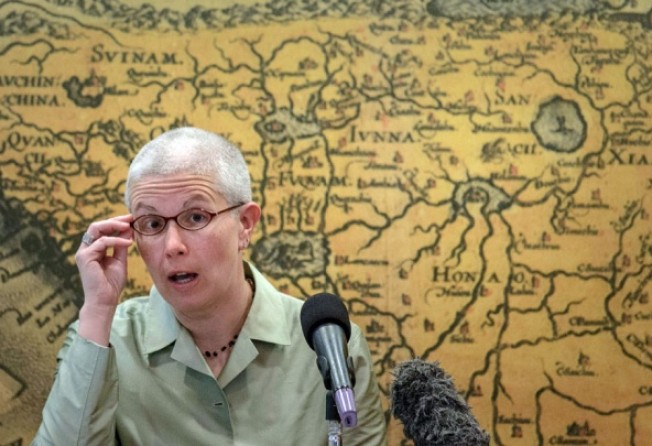Groups decry blitz on mainland Chinese anti-graft activists
Detention of 15 raises doubts about the new leadership's commitment to fighting corruption

More than a dozen anti-corruption activists in Beijing and Jiangxi province have been detained in the past two months after participating in or organising demonstrations calling for government officials to publicly disclose their assets, a number of human rights groups said in a joint statement issued yesterday.
The China Human Rights Lawyers Concern Group, Committee to Support Chinese Lawyers, Front Line Defenders, Human Rights Watch and Independent Chinese PEN called on the central government to release the detainees and drop all charges against them. They said the detentions cast doubt on President Xi Jinping's commitment to cracking down on government corruption.
Since May 7, 10 of the 15 activists detained had been formally arrested, indicating they were likely to be prosecuted and convicted, the right groups said. The charges against the 15 include illegal assembly, inciting subversion of state power, disturbing social order and extortion. The crime of inciting subversion carries a maximum penalty of 15 years in prison, while the other crimes have maximum penalties of five years in prison.
Nine activists in Beijing and one in Jiangxi have been formally arrested. Four other activists in Jiangxi remain in custody but have yet to be charged and one activist in Beijing is out on bail.
"When President Xi Jinping calls for a tough response to corruption, it's hailed as innovative policy, but when ordinary people say the same in public, his government regards it as subversion," Sophie Richardson, China director at Human Rights Watch, said.
Xi's elevation to Communist Party general secretary in November had raised hopes for political reform, spurring many activists across the mainland to push officials to disclose their wealth. More than 7,000 mainland activists, scholars, lawyers and businessmen have signed a petition calling for such disclosure launched late last year.
Zhang Lifan , a political affairs analyst formerly with the Chinese Academy of Social Sciences, said the latest crackdown showed the new leadership lacked the capacity to innovate in its fight against corruption, following repeated efforts by Xi's predecessors that failed to tame the corruption epidemic.
"Leaders are still preoccupied by the old idea that the power to fight corruption has to be in their own hands," Zhang said.
While leaders had repeatedly warned that the fight against corruption was a life-or-death struggle for the party, they did not want to give the public too much say in the process, he said.
Party leaders agreed that corruption would undermine the legitimacy of communist rule, Zhang said, but they also feared that the unrestricted exposure of corruption and public campaigns to hold officials more accountable would also damage their image.
"That answers why the government has also cracked down on those who wish to expose corruption," Zhang said, adding that the government had also tightly censored online criticism of official corruption that it viewed as being too politically sensitive.